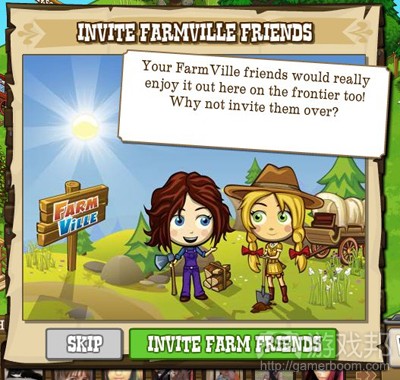游戏病毒性传播的两种类型及其区别
作者:Tadhg Kelly
当人们说起病毒性传播的时候,往往指的是游戏是否通过口舌宣传。但是,近些年来,病毒性传播衍生出两种不同的含义。
真假病毒传播
第1种病毒性属于福音传道,也就是真正的病毒性。当玩家极为欣赏某款游戏时,他会想要去讨论。比如,本周我的Twitter消息中满是玩家对《Skyrim》的积极评论。他们喜欢游戏,而Twitter中的评论比其他许多媒体更为准确。
第2种病毒性属于职责,也就是虚假的病毒性,指将通过各种方法将游戏玩法与社交媒体联系起来的过程,其使用的方法包括好友请求、分数发布或在Twitter上推广游戏以获得奖励。虚假病毒性可视为开发者同玩家间的交易,游戏用奖励“请求”玩家帮忙在社交媒体中发布游戏相关内容。
在玩家并不常见到此类信息的平台(游戏邦注:比如早期的Facebook)上,职责性病毒传播尚能发挥作用。然而,多数人很快便意识到这些开发商的技巧,于是便会忽视这部分内容。福音传道的寿命更长,但是较难以复制,因为它的效果与游戏的质量有关。
两者不可兼用
仰赖于福音传道的游戏能够与它们的粉丝构建起良好的关系。在这个过程中,尊重用户非常关键,因为粉丝们不希望自己被欺骗或者出卖,而采用职责战术则会迅速地削弱游戏对玩家的尊重。玩家乐于关注Notch,但是《Minecraft》并没有强迫他们发布自己在游戏中的进展。
相反,如果你的游戏使用了职责性的病毒传播方式,那便很难吸引粉丝青睐。玩家数量足够庞大最终就会形成小型社区(游戏邦注:比如《Mafia Wars》也有玩家部落),但主要玩家群体会认为,采用这种传播方式的游戏只是不断打扰他们的娱乐方式而已。这显然不是对玩家的尊重,玩家也很希望能够摆脱这种职责。
从运营的出发点来看,两种模型都是有效的。问题在于:你希望成为玩家眼中的哪种开发商?(本文为游戏邦/gamerboom.com编译,拒绝任何不保留版权的转载,如需转载请联系:游戏邦)
The Two Viralities [Marketing]
Tadhg Kelly
When people talk about virality, what they generally mean is whether a game spreads by word of mouth or not. However in recent years virality has taken on two different and often contradictory meanings.
True or False?
The first kind of virality is evangelism, or true virality. This is when a player is so excited by a game that he wants to talk about it. For example, this week my Twitter feed is full of mostly positive stories from players playing Skyrim. They are loving it, and the tweets serve as a better review of the game than many official organs manage.
The second kind is obligation, or false virality. It is the process of tying gameplay to social publishing such as through requests, score publishing or pimping the game on Twitter for a reward. False virality creates a transaction with a player, giving them something in exchange for allowing the game to essentially place an advertisement for itself in their social feed.
Obligation works in platforms where players are not used to seeing these kinds of messages (for example in the early days of Facebook). However most people quickly realise what they are and ignore them, much as they do advertising of any kind. Evangelism has a much longer shelf life, but is harder to replicate or account for in a business model because it’s relying on qualities, like the game actually being remarkable, which are hard to turn into a process.
Can I Use Both?
Actually no.
The problem is that games that rely on evangelism are crafting a careful relationship with their fans, and that relationship carries out into the world. Respect is key here because fans don’t like to feel duped or sold out, and an instant way to lose respect is by engaging in obligatory tactics. Players love to follow Notch, but Minecraft doesn’t force them to post levels that they have created.
Conversely, if your game is based around obligation then it’s pretty difficult to get fans to like you. Any audience of sufficient size will eventually breed small communities (even Mafia Wars has its tribes) but the main body of players will always think of your game as an amusement that hassles them from time to time. There is no respect, and instead the player is usually looking for an angle to get around the obligation.
From a business standpoint, either is a valid model. The question is: Which do you want to be? (Source: What Games Are)








































 闽公网安备35020302001549号
闽公网安备35020302001549号